Tiago Machado
A methodological analysis of prompt perturbations and their effect on attack success rates
Nov 11, 2025Abstract:This work aims to investigate how different Large Language Models (LLMs) alignment methods affect the models' responses to prompt attacks. We selected open source models based on the most common alignment methods, namely, Supervised Fine-Tuning (SFT), Direct Preference Optimization (DPO), and Reinforcement Learning with Human Feedback (RLHF). We conducted a systematic analysis using statistical methods to verify how sensitive the Attack Success Rate (ASR) is when we apply variations to prompts designed to elicit inappropriate content from LLMs. Our results show that even small prompt modifications can significantly change the Attack Success Rate (ASR) according to the statistical tests we run, making the models more or less susceptible to types of attack. Critically, our results demonstrate that running existing 'attack benchmarks' alone may not be sufficient to elicit all possible vulnerabilities of both models and alignment methods. This paper thus contributes to ongoing efforts on model attack evaluation by means of systematic and statistically-based analyses of the different alignment methods and how sensitive their ASR is to prompt variation.
A Comprehensive Evaluation framework of Alignment Techniques for LLMs
Aug 13, 2025Abstract:As Large Language Models (LLMs) become increasingly integrated into real-world applications, ensuring their outputs align with human values and safety standards has become critical. The field has developed diverse alignment approaches including traditional fine-tuning methods (RLHF, instruction tuning), post-hoc correction systems, and inference-time interventions, each with distinct advantages and limitations. However, the lack of unified evaluation frameworks makes it difficult to systematically compare these paradigms and guide deployment decisions. This paper introduces a multi-dimensional evaluation of alignment techniques for LLMs, a comprehensive evaluation framework that provides a systematic comparison across all major alignment paradigms. Our framework assesses methods along four key dimensions: alignment detection, alignment quality, computational efficiency, and robustness. Through experiments across diverse base models and alignment strategies, we demonstrate the utility of our framework in identifying strengths and limitations of current state-of-the-art models, providing valuable insights for future research directions.
Procedural Content Generation via Knowledge Transformation (PCG-KT)
May 01, 2023



Abstract:We introduce the concept of Procedural Content Generation via Knowledge Transformation (PCG-KT), a new lens and framework for characterizing PCG methods and approaches in which content generation is enabled by the process of knowledge transformation -- transforming knowledge derived from one domain in order to apply it in another. Our work is motivated by a substantial number of recent PCG works that focus on generating novel content via repurposing derived knowledge. Such works have involved, for example, performing transfer learning on models trained on one game's content to adapt to another game's content, as well as recombining different generative distributions to blend the content of two or more games. Such approaches arose in part due to limitations in PCG via Machine Learning (PCGML) such as producing generative models for games lacking training data and generating content for entirely new games. In this paper, we categorize such approaches under this new lens of PCG-KT by offering a definition and framework for describing such methods and surveying existing works using this framework. Finally, we conclude by highlighting open problems and directions for future research in this area.
* 15 pages, 14 figures
Automatic Critical Mechanic Discovery in Video Games
Sep 06, 2019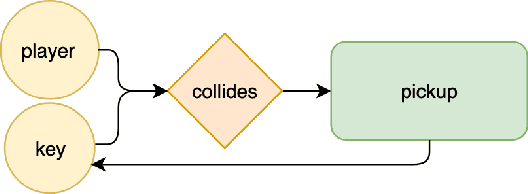

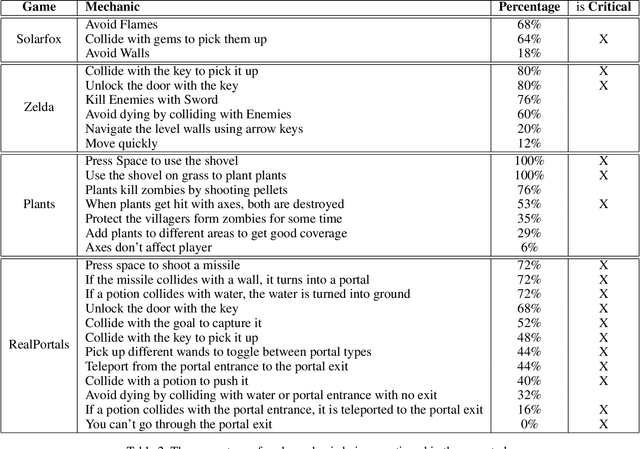
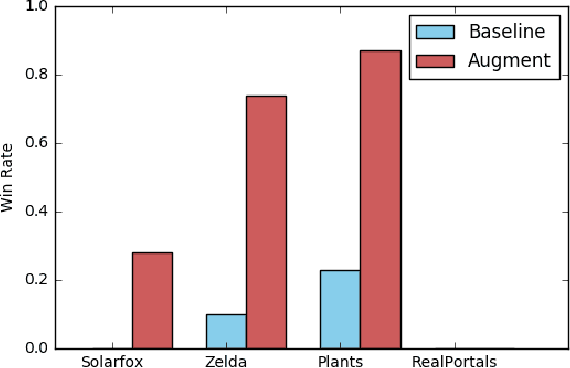
Abstract:We present a system that automatically discovers critical mechanics in a variety of video games within the General Video Game Artificial Intelligence (GVG-AI) framework using a combination of game description parsing and playtrace information. Critical mechanics are defined as the mechanics most necessary to trigger in order to perform well in the game. In a user study, human-identified mechanics are compared against system-identified mechanics to verify alignment between humans and the system. The results of the study demonstrate that our method is able to match humans with high consistency. Our system is further validated by comparing MCTS agents augmented with critical mechanic information against baseline MCTS agents on 4 games in GVG-AI. The augmented agents show a significant performance improvement over their baseline counterparts for all 4 tested games, demonstrating that knowledge of system-identified mechanics are responsible for improved performance.
Evaluation of a Recommender System for Assisting Novice Game Designers
Aug 13, 2019
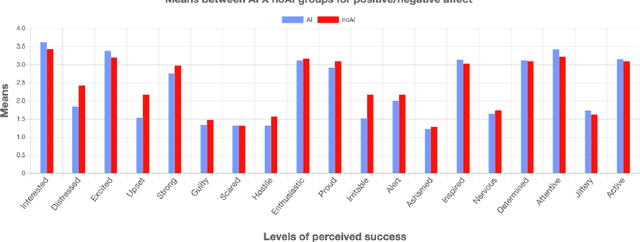
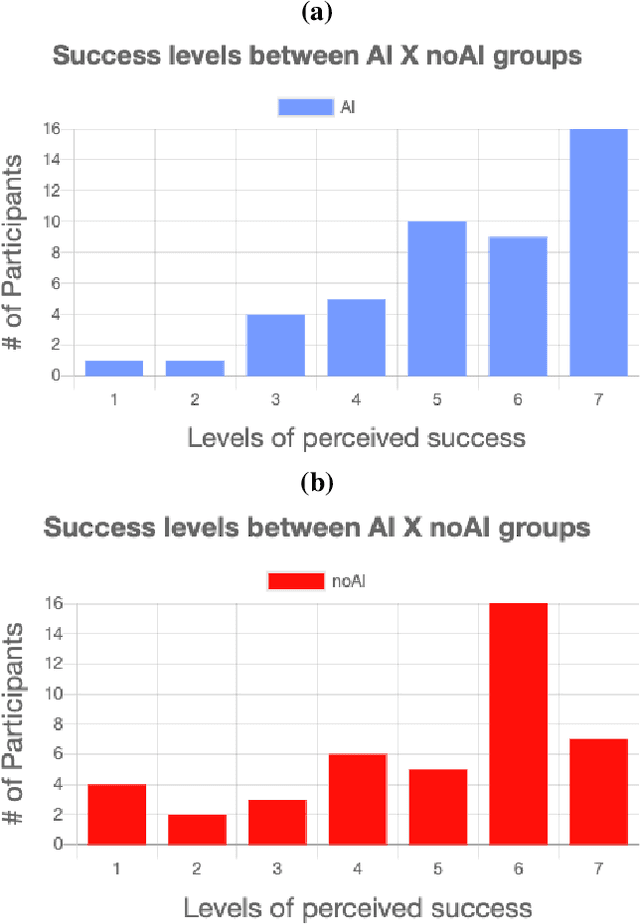
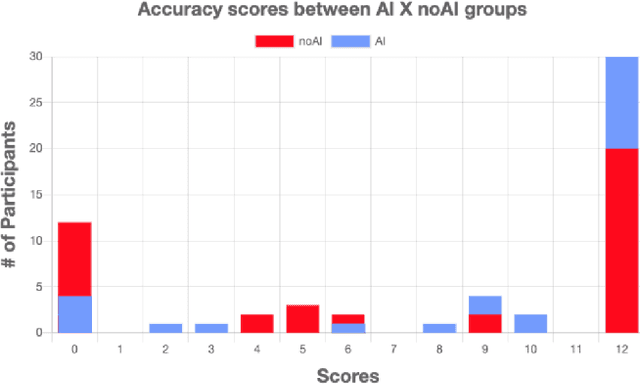
Abstract:Game development is a complex task involving multiple disciplines and technologies. Developers and researchers alike have suggested that AI-driven game design assistants may improve developer workflow. We present a recommender system for assisting humans in game design as well as a rigorous human subjects study to validate it. The AI-driven game design assistance system suggests game mechanics to designers based on characteristics of the game being developed. We believe this method can bring creative insights and increase users' productivity. We conducted quantitative studies that showed the recommender system increases users' levels of accuracy and computational affect, and decreases their levels of workload.
Pitako -- Recommending Game Design Elements in Cicero
Jul 08, 2019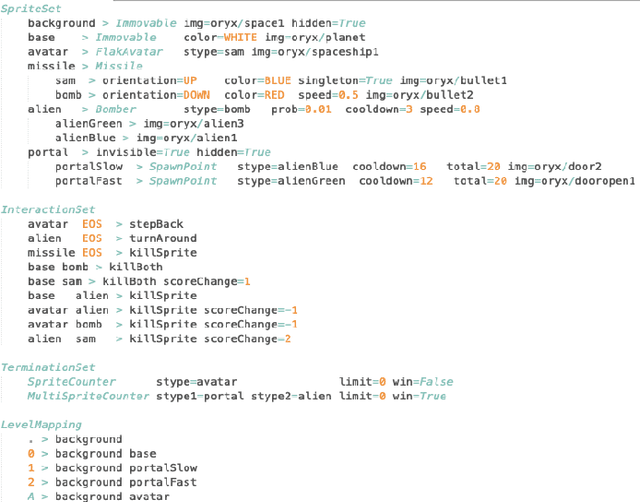
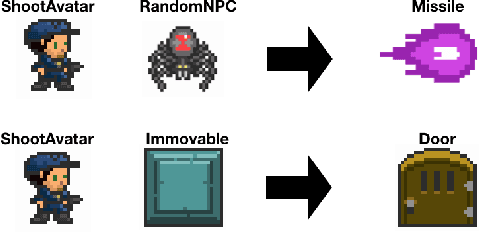
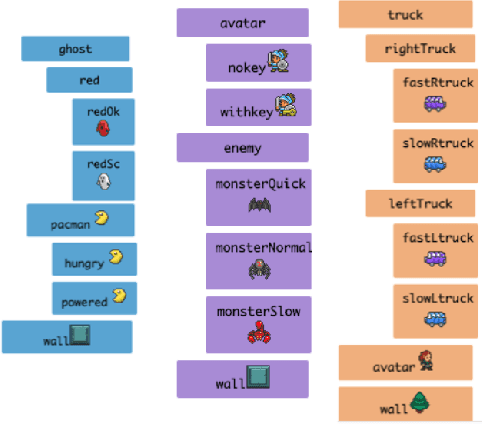
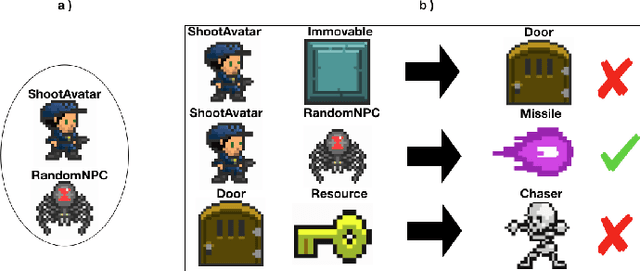
Abstract:Recommender Systems are widely and successfully applied in e-commerce. Could they be used for design? In this paper, we introduce Pitako1, a tool that applies the Recommender System concept to assist humans in creative tasks. More specifically, Pitako provides suggestions by taking games designed by humans as inputs, and recommends mechanics and dynamics as outputs. Pitako is implemented as a new system within the mixed-initiative AI-based Game Design Assistant, Cicero. This paper discusses the motivation behind the implementation of Pitako as well as its technical details and presents usage examples. We believe that Pitako can influence the use of recommender systems to help humans in their daily tasks.
AtDelfi: Automatically Designing Legible, Full Instructions For Games
Sep 17, 2018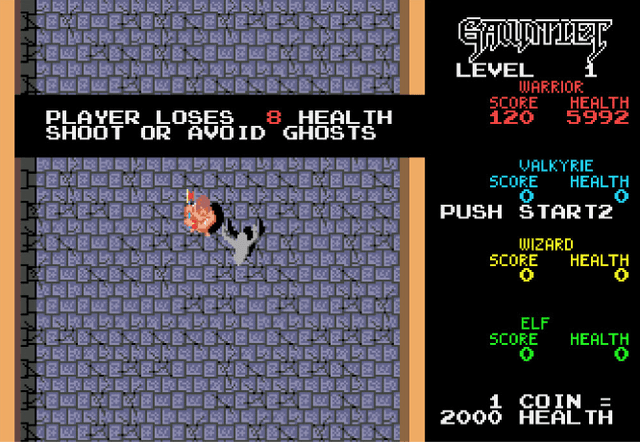
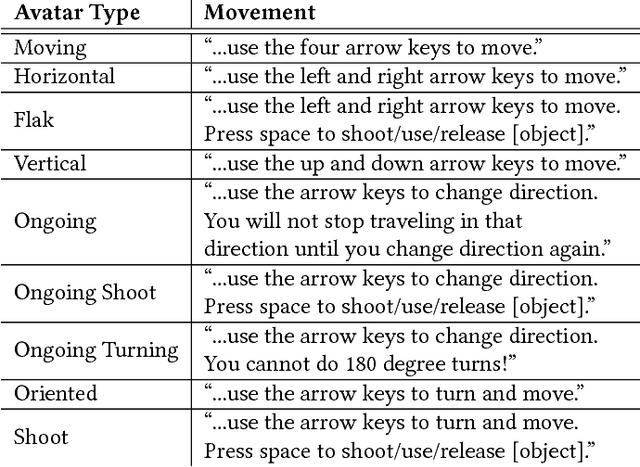
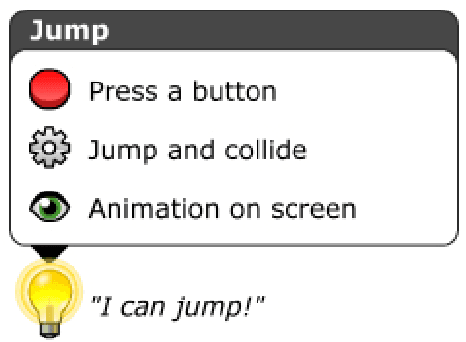
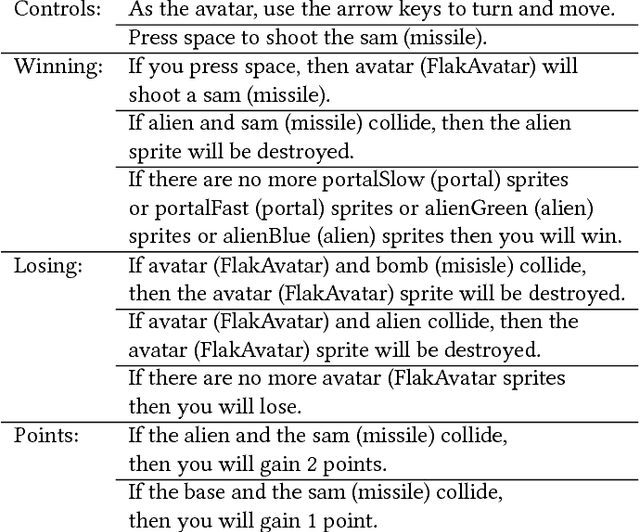
Abstract:This paper introduces a fully automatic method for generating video game tutorials. The AtDELFI system (AuTomatically DEsigning Legible, Full Instructions for games) was created to investigate procedural generation of instructions that teach players how to play video games. We present a representation of game rules and mechanics using a graph system as well as a tutorial generation method that uses said graph representation. We demonstrate the concept by testing it on games within the General Video Game Artificial Intelligence (GVG-AI) framework; the paper discusses tutorials generated for eight different games. Our findings suggest that a graph representation scheme works well for simple arcade style games such as Space Invaders and Pacman, but it appears that tutorials for more complex games might require higher-level understanding of the game than just single mechanics.
* 10 pages, 11 figures, published at Foundations of Digital Games Conference 2018
Blue Sky Ideas in Artificial Intelligence Education from the EAAI 2017 New and Future AI Educator Program
Feb 01, 2017Abstract:The 7th Symposium on Educational Advances in Artificial Intelligence (EAAI'17, co-chaired by Sven Koenig and Eric Eaton) launched the EAAI New and Future AI Educator Program to support the training of early-career university faculty, secondary school faculty, and future educators (PhD candidates or postdocs who intend a career in academia). As part of the program, awardees were asked to address one of the following "blue sky" questions: * How could/should Artificial Intelligence (AI) courses incorporate ethics into the curriculum? * How could we teach AI topics at an early undergraduate or a secondary school level? * AI has the potential for broad impact to numerous disciplines. How could we make AI education more interdisciplinary, specifically to benefit non-engineering fields? This paper is a collection of their responses, intended to help motivate discussion around these issues in AI education.
 Add to Chrome
Add to Chrome Add to Firefox
Add to Firefox Add to Edge
Add to Edge